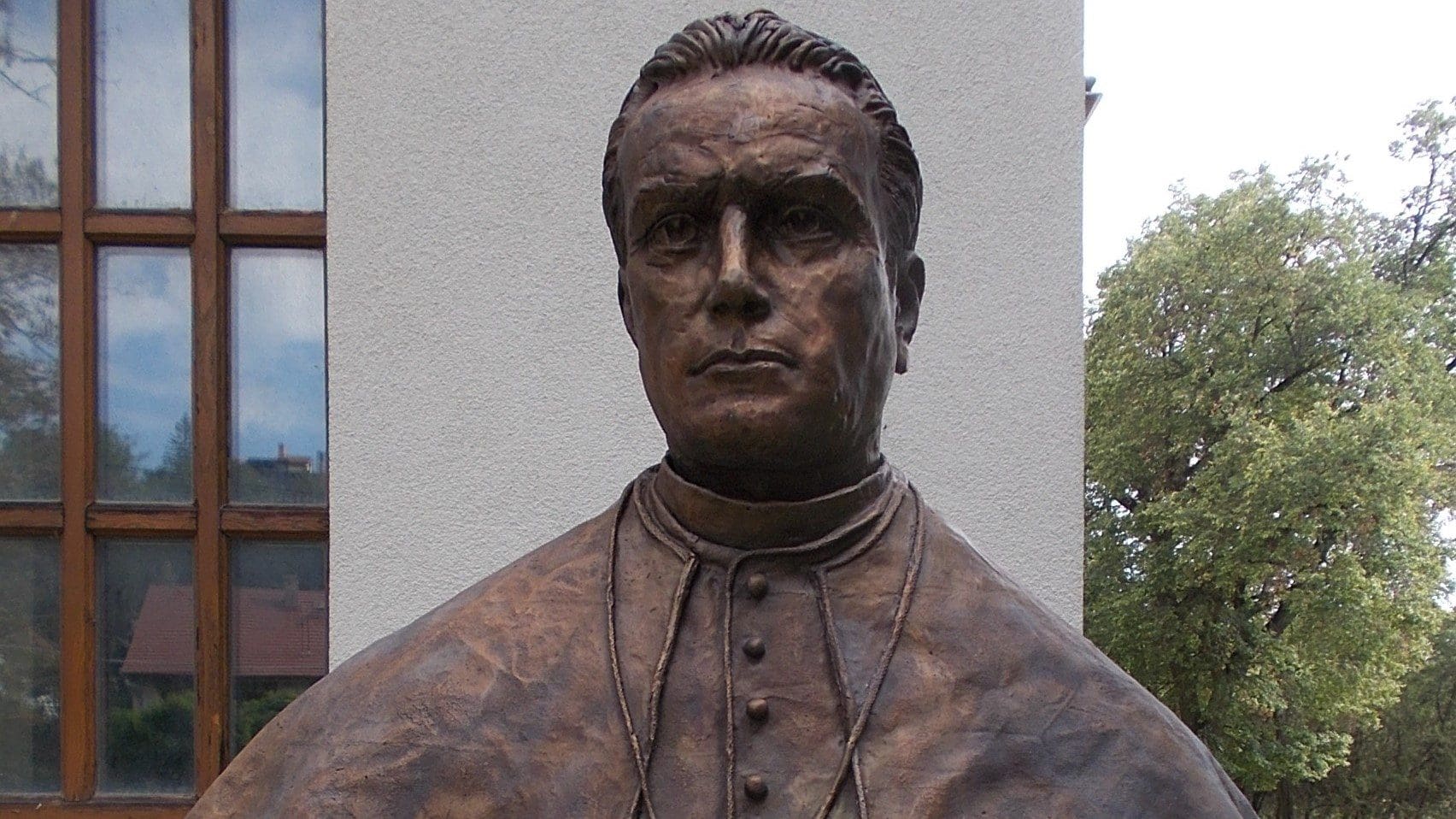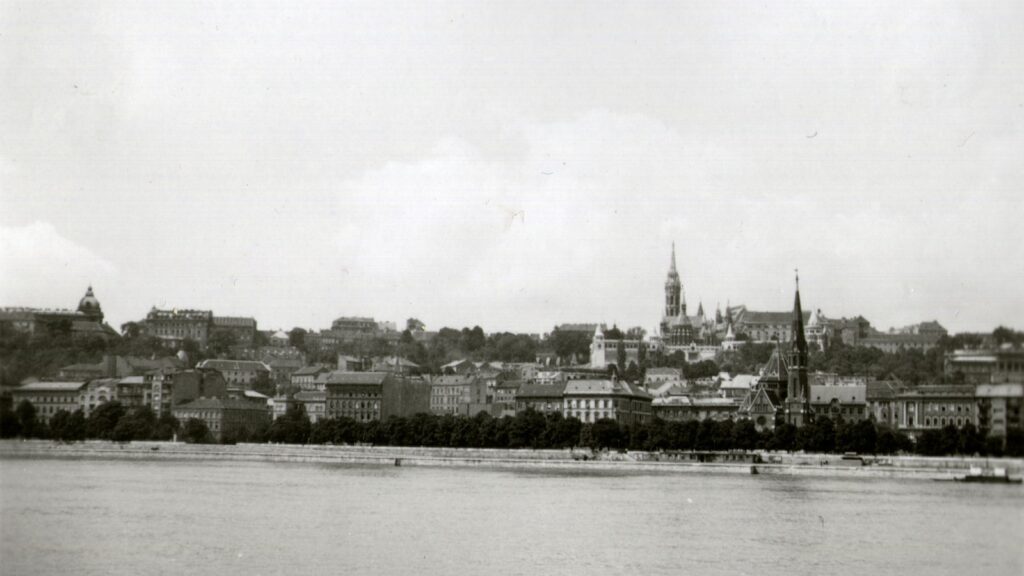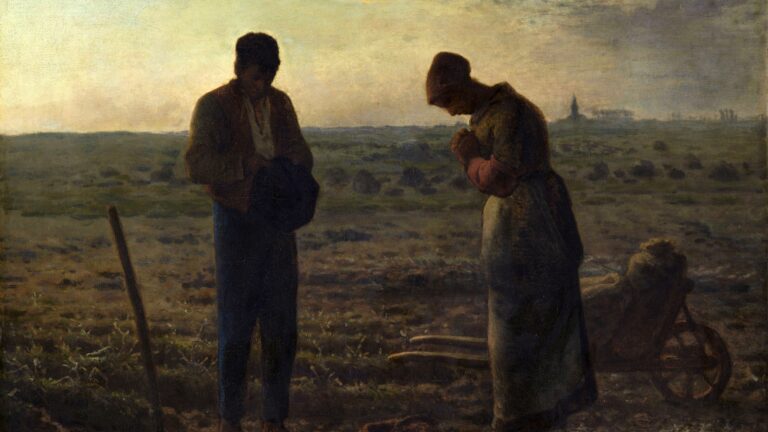Ottokár Prohászka (1858–1927) was one of the most influential Hungarian Christian thinkers at the turn of the 20th century. His influence on domestic public life before and after the First World War was unquestionable. However, he was a controversial figure. Considering the public debates surrounding the bishop of Székesfehérvár, it is no wonder that opinions about his public role and public activity are still a matter of contention.
Some commentators consider him the father of Hungarian Christian socialism, while others claim that his philosophical heritage cannot be interpreted as the primary source of Hungarian Christian democratic politics because of his antisemitic reasoning. Thus, it is difficult to judge Prohászka’s status. Furthermore, the bishop’s ecclesiastical activity is not the subject of public discourse. Although these roles are not entirely separable, the focus of this article is his role as a public intellectual.
Prohászka’s life and work have been extensively researched. Nevertheless, it is useful to reappraise his legacy and particularly his key work, Culture and Terror. It should be recognised that Prohászka revised his thoughts during his long life. This does not mean that Prohászka’s oeuvre is completely fragmented and incoherent; only that it is worth being careful about from which period we draw our insights. For instance, as László Bernát Veszprémy pointed out, in the first part of his intellectual activity, he can be characterised by his ‘groundbreaking social teachings.’ He advocated a controlled economy where control is justified by the ’truths of Christ.’ The historian also notes that in some of his writings, Prohászka is ’arguing for the legitimacy of “class war” and declaring a “war” on big banks.’ He adds: ’No one on the right quoted Marx as often and gleefully as Prohászka, who often incorporated Marx’s anti-Jewish remarks into his articles and speeches.’ Most of his more conservative ideas and values developed only after WWI.
What changed the perspective of Prohászka? For one, the short-lived Soviet Republic in Hungary from March to August 1919 significantly impacted the bishop’s attitude towards socialism.[i] Several authors describe Prohászka in relation to the post-1919 Christian-nationalist discourse, noting that his spiritual guidance and Christian mobilisation efforts embedded him in the new system.[ii] He became a member of the restored Upper House and participated in the founding of the Christian National Union Party.
What’s more, Horthy once even offered him the position of prime minister.[iii]
He refused. However, in light of these facts, his close affiliation with the Horthy regime is undeniable.
What makes the situation more problematic is that during the Second World War, the Arrow Cross Party, its supporters, and the conservative opposition frequently cited Prohászka to underpin their arguments. Veszprémy summarises it aptly: ‘Everyone could find a quote that fit their worldview, and another citation could then be found to counter the previous one.’ Although Prohászka died almost a hundred years ago, in 1927, debates about his controversial legacy still linger.
Leaving to one side Prohászka’s antisemitism, let us turn to his major work and attempt to capture the political implications of Prohászka’s thought. In Culture and Terror, Prohászka interprets Christianity and Christian socialism
as a particular principle and philosophical attitude, not as a Christian version of social democracy.
He regards Christianity as a social ideal that gradually gained dominant influence vertically, in the sense that it affected and reached all strata of society. He also underscores that, through its impact on culture, Christianity has gained far more influence than simplistic liberal individualism.
In contrast to the functions political science attributes to ideology, namely that it intends to influence society, play an integrative role and articulate specific political demands, Prohászka views ideologies as phenomena that control the cultural-spiritual direction of a given era. This includes not just the public realm, but also technical, economic, and social relationships guided by these ideas affecting social progress. He does not deny the abovementioned functions of ideologies. However, when he refers to them, he always underlines their impact on culture. From this point of view, Christianity offers a paradigm capable of influencing and determining the direction of social progress in Prohászka’s perception. The problem in his view is that Christianity has lost this role. The question is how it can recover it.
At the beginning of his book, Prohászka vividly depicts the rotation of ideas and cultural goals. He remarks that loudly proclaimed cultural goals, just like the signboards on village pubs, are always replaced after a social upheaval. Slogans like ‘Renaissance’ or ‘freedom, equality, brotherhood’ were slogans that would inevitably be replaced after the First World War.[iv]
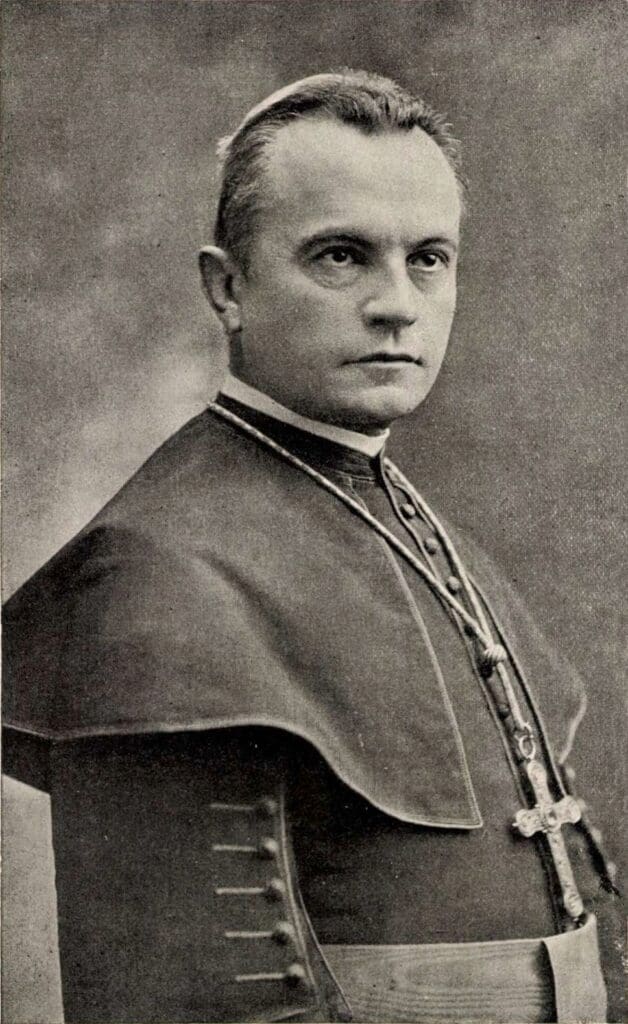
A typical feature of Christian socialist thinking is the exciting mixture of realistic and idealistic perspectives, which can be observed throughout the book. It is vital for Prohászka not to reject the new direction of social progress which he summarises as follows: ‘What should be the ideal of our social and economic life and, consequently, the goal of all politics, if not a better way of life in all social strata…?’[v] Prohászka’s idealism also prevails when he considers these social changes embedded in social progress and treats them as irreversible. In this way, he also goes against dialectic of Marxism.
When Prohászka discusses social development, he seeks an entirely different ideological and philosophical foundation. In his theory, the linear historical approach prevails, based on Judeo-Christian foundations.
The rejection of Marxism unequivocally separates his theory and Hungarian Christian socialism from the large family of socialist ideologies.
This philosophical basis, on the one hand, counterposes Prohászka’s approach with the gloomy perspective of the history of materialism; on the other hand, it paves the way for a kind of idealism, since it suggests that history is moving towards a teleological goal.
Standing on the ground of inexorable social progress, Prohászka views social transformation positively, and even despite his harsh criticism of socialism, he acknowledges its necessity. After all, social democracy serves to achieve social progress that ‘excludes the phraseology of delusive emotions and disturbing social passions,’[vi] which is otherwise so problematic in revolutionary change. The way it operates is bloody and violent. Nonetheless, he recognises the positive asset therein, like purgatory, as if it were an unavoidable step. Christian socialist features such as the value of dispassion and the rejection of revolutionary fervour prevail strongly in his criticism. He writes: ‘we really need to break free from the stifling hoops of spiritual enchantment, the compulsion of intoxication, passion, heated feelings, which we fall into through the reaction against oppression based on doctrinaire, one-sided principles.’[vii]
He calls social democracy doctrinaire when it is incapable of grasping reality but capable of inciting social desperation. He describes it as the gunpowder that drops into the lowest social layers in tiny grains to blow up ‘the beautiful and the ugly, the sinner and the innocent’ as the spark ignites.
At the same time, it is worth noting that, despite his harsh criticism,
he considers social democracy to be a reaction against liberalism and the devastating laissez-faire capitalism
that emerged in the wake of the French Revolution. Although he condemns violent social upheaval, he does not completely refuse the social effects they occasion. In this regard, he even acknowledges the positive role of the French Revolution: ‘This is what the French Revolution did. It did a good service to humanity by giving free vent to the third order and bringing more freedom to man, but where it fell away from the true freedom of life, and where it failed was in hindering humanity from ensuring the possibility of a proper human life?!’[viii]
All of this is embedded in the theoretical framework of Prohászka’s thought. However, it leads to a moderate shift from the Papal social encyclicals, which are the primary source of Christian socialism. This brings us to the problem of modernism and how his ideas differ from the theoretical framework of classic Catholic Christian socialist thinkers. While the social encyclicals acknowledge the necessity for social interventions, they criticise modern social mass movements. From this point of view, the French Revolution, by disrupting the organic order of society, set social progress back rather than fostered it. However, Prohászka takes an eschatological, prophetic role when discussing the ‘living force’ in the revolution that moved the world forward. In his approach,
concrete socio-political processes acquire a theological, transcendent meaning.
In Prohászka’s thinking, social democracy—despite his profound criticism—is embedded in the adequate, expedient, and foremost permanent process of social progress. Its actuality is given through its embrace of the workers and demanding productive and humane working conditions.[ix]
At this point, it is worth interjecting a theoretical question, to which we also can give the answer based on Prohászka. In the case of Christian thinkers, the question always arises: to what extent do social progress and technical development overlap? The distinction between the two cannot be separated in the thinking of Prohászka. Moreover, the idea of progress is supplemented with a theological dimension, the continuous progress towards God, which is visible both at the theoretical level and in practice.
At the convention of the Chamber of Industry in Székesfehérvár, Prohászka explained his thesis on human work, which is dependent on continuous progress. In this regard, the fear of mechanisation is based on the emotional nature of human beings. Just as in Antiquity and the Middle Ages, hand tools, like scissors, needles, and planers, appeared and became widespread; returning to a previous technological era is impossible. The problem, therefore, isn’t with large industries and mass production but with the immoral, profit-oriented motive.[x]
Culture and Terror is a product of Prohászka’s mature thinking, in which the thesis of social progress does not change; it is only supplemented by the comprehensive criticism of social democracy. However, Culture and Terror is not only a criticism of social democracy: it sets the course for true Christian socialism.
He writes: ‘We must include soul, God and religion in all human programmes.’[xi] Christian socialism unites this external culture with the internal culture of the Christian person. However, what do internal and external culture mean rom Prohásza’s point of view? He claims: ‘…it would be a hyperbolism if we identified Christianity or the church with the culture of certain eras and with their political or economic system, and if we said that in a truly Christian culture only this or that economic and production system, or only this or that political and social order is permissible.’[xii] Furthermore, he firmly states we cannot accept to ascribe to Christianity everything that was composed by culture. Inner culture appears primarily inside the person through the power of the gospel. Although this has an impact on a person’s habits, family life, and even their social and state institutions, Prohászka considers it a fatal mistake if no clear distinctions is made between the two cultures. External culture is how mankind lives, dresses, travels, or writes, architecture, and street lighting of the cities or the state organisation and the political constitutions men establish, how property and rights are the distributed. In his view, a lot of problems arose from the lack of such a distinction and from regarding everything that Western culture includes Christian culture. In this sense,
it is harmful to contrast Western Christian culture with pagan Roman culture or with Chinese-Far-Eastern culture,
since Chinese culture can also acquire the achievements of technical development of the West.[xiii] Prohászka’s advice is therefore not to identify any historical era with Christian culture and to distinguish historical eras and their privileged political-state systems from Christianity. Looking at historical and social development from this perspective he claims man is attracted once by the internal culture and idealism of Christianity, then by the tangible facts of the world and by the achievements of external culture. After the culmination of a big cultural era with the new inventions of external culture, he is again attracted by internal culture and guided by the demands of his soul. In summary, external culture has immanent laws and it is also dependent on permanent progress. On the other hand, Prohászka clearly believes that there will be a point n future when external culture will give more space to the demands of internal culture.
Describing his age, he states that the time has not come yet for Christian socialism to become a mass social movement. While social democracy included anticlericalism and the denial of the human soul in its programme, Christian socialism does not throw itself into the struggle to raise the standard of living of workers with sufficient determination for the workers to feel that it wants cares about them. Nevertheless, he notes: ‘Once the great antagonism passes away, and inequality is better balanced, then the need for spiritual life and the intensive cultivation of culture will predominate more vividly again, and it is possible that after the flagrant social-democratic anticlericalism
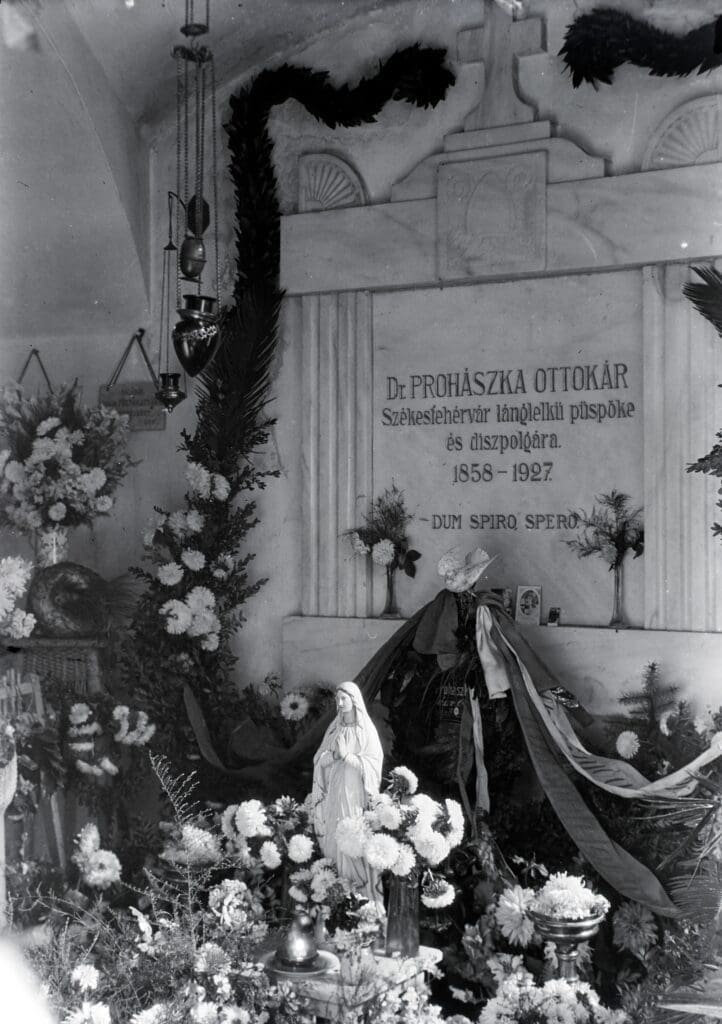
people will become deeply and sincerely religious again and one day man, will smile at the theses of historical materialism.’[xiv]
Although a century later, being fully aware of the historical processes of the 20th century, we may see his words in a different light, Prohászka’s work still provides an intriguing insight into how a Christian Socialist author saw the position, possibilities, and future of the Christian political movements at the time. The result is an impressive example of how theological and social philosophical concepts overlapped during the early formation of Christian socialism in Hungary. It was undoubtedly a necessary and essential turning point in the development of modern Christian democracy when the Christian party leaders and their intellectuals announced their programmes on a secular basis, adopting the principle of the separation of state and church,
but with unconditional respect for the Christian worldview and the Christian approach of human dignity.
[i] Csaba Fazekas: Prohászka Ottokár a XIII. Országos Katolikus Nagygyűlésen, 1920. október, In: A történettudomány szolgálatában. Tanulmányok a 70 éves Gecsényi Lajos tiszteletére, Szerk.: Baráth Magdolna–Molnár Antal, Bp.-Győr 2012, 417-430. p.
[ii] Máté Gárdonyi: Az antiszemitizmus funkciója Prohászka Ottokár és Bangha Béla társadalom- és egyházképében, In: A holokauszt Magyarországon európai perspektívában, Szerk.: Molnár Judit. Bp., 2005), 193-204. p
[iii] Béla Kovrig: Katolikus demokratikus és szociális reformmozgalmak Magyarországon, Gondolat Kiadó, Budapest, 2019. 216 p.
[iv] Ottokár Prohászka: Kultúra és Terror, Szent István Társulat, Budapest, 1927. p.1.
[v] Ottokár Prohászka: Kultúra és Terror, 1927. p.5.
[vi] Ottokár Prohászka: Kultúra és Terror, 1927. p.5.
[vii] Ottokár Prohászka: Kultúra és Terror, 1927. p.4.
[viii] Ottokár Prohászka: Kultúra és Terror, 1927. p.4.
[ix] It can be noted, that in earlier writings, Prohászka had a different viewpoint. He wrote in 1894: ‘Here’s the atomized mass; everything in modern work points to the fact that large social classes are torn apart and scattered.’ Almost ten years later the elements of a different perception can already be observed, when he states that the historical eras change and a previous era does not return, and making efforts in the opposite direction is completely unnecessary and pointless.
[x] Ottokár Prohászka: Kultúra és Terror, 1927. p.21.
[xi] Ottokár Prohászka: Kultúra és Terror, 1927. p.26.
[xii] Ottokár Prohászka: Kultúra és Terror, 1927. p.46.
[xiii] Ottokár Prohászka: Kultúra és Terror, 1927. p.49.
[xiv] Ottokár Prohászka: Kultúra és Terror, 1927. p.21.

